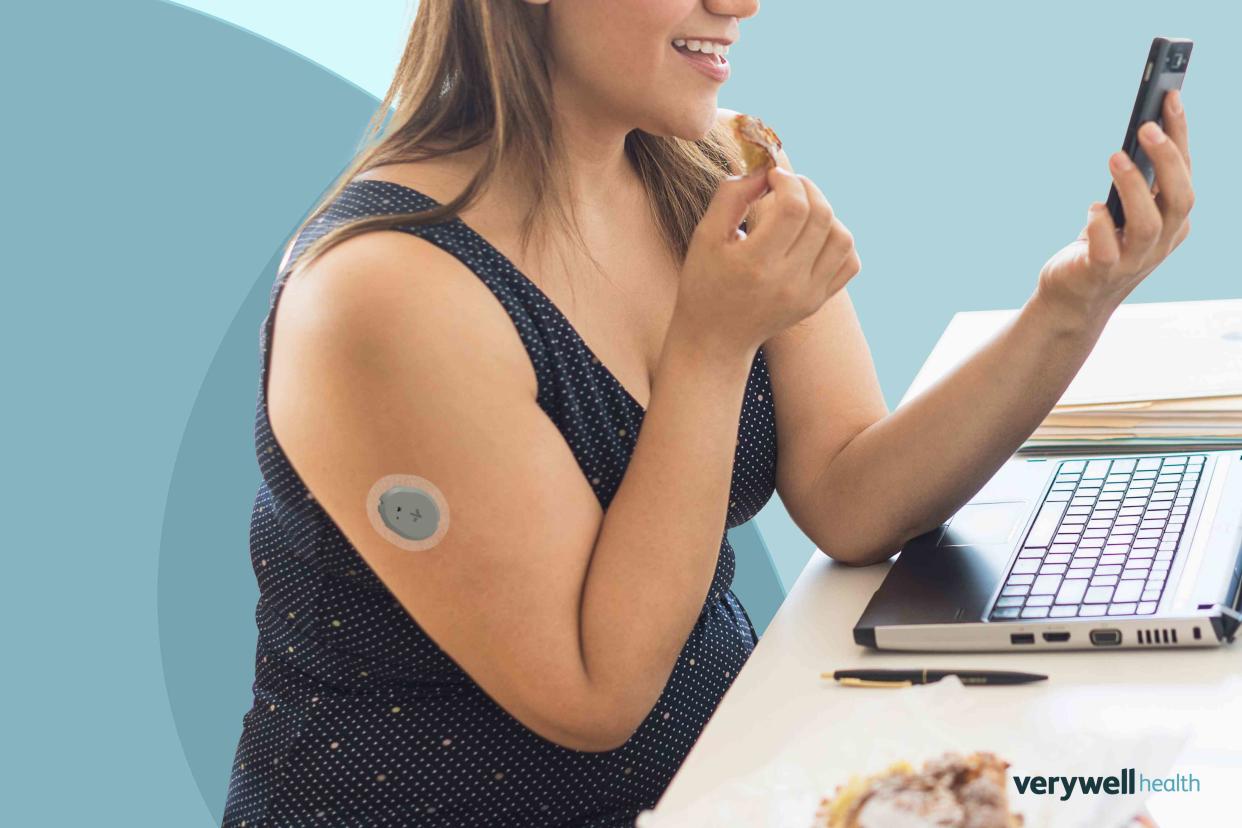The First OTC Continuous Glucose Monitor Will Be Available Summer 2024

Photo Illustration by Amelia Manley for Verywell Health / Getty Images / Product Image by Dexcom
Fact checked by Nick Blackmer
Key Takeaways
The FDA has given marketing approval for the first OTC continuous glucose monitor.
The wearable device, made by Dexcom, is expected to enter the market this summer.
The product is meant for adults with type 2 diabetes who don't use insulin.
The Food and Drug Administration (FDA) has given marketing approval for the first over-the-counter continuous glucose monitor (CGM).
The product, Dexcom’s Stelo Glucose Biosensor System, is approved to support adults with type 2 diabetes who don’t use insulin and those without diabetes who are looking to monitor their blood glucose. It's slated for a summer 2024 release.
Stelo is a wearable sensor that can last up to 15 days before it needs to be replaced. It connects to an app on your phone, providing blood glucose readings every 15 minutes. The approval came after the FDA was presented with data that showed that it had the same efficacy as similar products. However, the data is not currently available to the public.
Dexcom's chief operating officer Jake Leach said he’s enthusiastic about Stelo’s potential to reach a broader audience. Its availability over the counter allows people to bypass some of the financial hurdles associated with insurance providers.
“As we look back at milestones, this is the one that is going to be up there on the chart of big changes for the CGM industry. And we couldn’t be more excited that Dexcom is the one leading the charge,” Leach told Verywell.
Pouya Shafipour, MD, a family and obesity medicine physician at Providence Saint John’s Health Center, said the product is a promising development, but he expressed concerns about its accuracy and how patients might react to near real-time data.
“There’s a lot of different things that can influence the results such as diet, exercise, supplements, vitamins you’re taking, so for someone who’s not in health care, or doesn’t have expertise, my fear is it might cause a lot of anxiety if they see, suddenly, the blood sugar goes up,” Shafipour told Verywell.
Related: Wearable Tech to Manage Your Diabetes
Who Should Use Stelo?
Shafipour said patients who have success with CGMs focus on broader trends rather than individual spikes or dips. The ideal patient for this product would be someone who has prediabetes or early-onset type 2 diabetes, he added.
“They can kind of use this as the guidance for future diet and behavior, or exercise management,” Shafipour said.
CGMs have also surged in popularity with the increased interest in longevity and athletic performance.
Dexcom’s COO Leach said that while the company is interested in the athletic market, it’s prioritizing diabetes patients.
“I can’t tell you how many people I know that have tried a CGM that don’t have diabetes that say, ‘I’ve learned some interesting stuff. That’s kind of cool, but now what am I supposed to do with this information? How do I actually improve my performance? How do I actually lose weight?’” Leach said. “The products have to be designed for that. Over time, we intend to bring products to serve those use cases. But Stelo is specifically designed for type 2 diabetes.”
Related: What to Know About Blood Glucose Levels
What Are the Risks Associated With Stelo?
According to the FDA, side effects from the use of Stelo may include local infection, skin irritation, and pain.
The agency said Stelo is not meant as an option for those who use insulin because it lacks a warning system for hypoglycemia. Users are also urged not to use the data provided to make any key health decisions without consulting a medical professional.
Despite the potential risks of improper use and patients overanalyzing short-term data, Shafipour said he sees a viable market for this device.
“I think they’re great devices,” Shafipour said. “They can provide a lot of information in terms of activities, different types of foods that can influence [blood sugar levels], and there’s a lot of doctors who have great podcasts that are advocating for these devices for people to take control of their health and diet.”
Read Next: The Best 8 Glucometers, Backed by Our Testing
What This Means For You
Dexcom’s Stelo—a wearable continuous glucose monitor—will soon be available over-the-counter this year.
Read the original article on Verywell Health.

